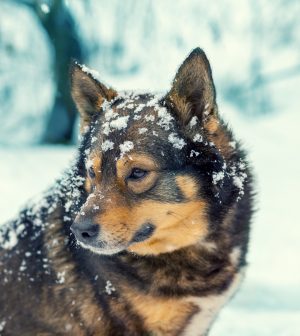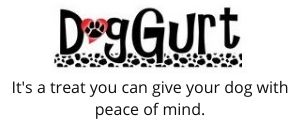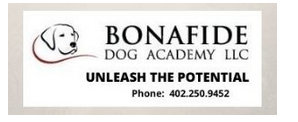- Do you subscribe to Dharma Dog Training’s Newsletter? You should.
- A Unique Campaign from The Humane Society of the United States
- Rabid bats in Omaha- Stay safe, prepared with these tips
- Springtime Activities in Omaha
- Mill Dog Monthly from Bailing Out Benji
- World Spay Day, Legislative Alert in Nebraska
- Attend the Nebraska Rescue Council’s monthly meeting this Saturday
- Five Hard-to-Ignore Reasons to Adopt!
- Paws in Pink to Benefit Breast Cancer Foundation
- VCA, Inc. Acquires MidWest Vet Specialists from Kansas State University
Ensuring a Safe and Joyous Season for Your Furry Friends

Are you planning on sharing the holiday season with your family and want to include your furry friends? Christmas is a magical time, and while we may desire to go all out with fancy decorations and food, some of these festive items can be detrimental to your dog or cat.
Simple decorations are much safer for your pets, as glass ornaments can harm your canine or feline companion. Certain foods, like delectable chocolates, greasy turkey skin and fat, and poultry bones, are also toxic to your pet. Keep your pet from dangerous pine needles by using a fake tree.
There are also things you can do to minimize your pet’s stress. In this article, you will learn how to ensure a safe and joyful holiday season for your pets.
How to Keep Your Pet Safe During the Holidays
Protecting your dog or cat should be a top priority for pet parents. We can get lost in the excitement of the holidays and sometimes be oblivious to any trouble our pets may find themselves in. This flurry of activity is why knowing how to keep them out of danger is important so everyone can safely enjoy the holidays.
Holiday Decorations
Elaborate decorations may be beautiful and full of decorative charm, but they can also cause significant harm to your pet. According to the Humane Society of Macomb, Glass ornaments can break easily and “lead to cuts in paws and mouths.” Your pet may be fascinated by shiny tinsel and instinctively want to chew on it. However, tinsel is hazardous to your four-legged family member. Pet MD explains that if your dog or cat swallows tinsel, the following symptoms may occur:
- Vomiting
- Diarrhea
- Abdominal pain
- Lack of appetite
- Straining to go potty
- Changes in behavior
If your pet ingests tinsel, it can lead to a blockage, which is life-threatening and may require surgery. Also, be careful with any hooks you use to hang ornaments. Hooks can pose a serious threat to your pet if swallowed.
Salt dough ornaments are also a danger. Salt is toxic for pets, and high sodium levels in your dog or cat can lead to hypernatremia. The condition causes imbalances in sodium and water, which can even be lethal. Instead, you can use some lovely wooden ornaments to invoke the holiday spirit. Let the kids create paper ornaments as a fun family activity.
Toxic Holiday Foods
Several holiday foods are toxic to your pet and should be avoided. Chocolate is a popular dessert for the holidays. Merck Veterinary Manual asserts that chocolate contains theobromine and caffeine, which are highly toxic to our furry friends. Some of the signs of chocolate toxicity in pets:
- Seizures
- Vomiting
- Diarrhea
- Abdominal distension
- High blood pressure
- Tachycardia (fast heart rate)
If your dog or cat consumes turkey skin and fat, they may develop pancreatitis, an inflammatory condition of the pancreas that makes them extremely sick. Giving your dog a poultry bone to chew on is a major mistake.
Your pup can choke on it, which may result in a blockage. Surgery may be necessary to correct it. Sugar-free candies containing xylitol are toxic. Do not allow them to have any dishes that contain onions or garlic. Grapes and raisins are also poisonous. Research is ongoing to figure out why, but experts think tartaric acid is the culprit in the grapes that make them toxic.
Stress Busters
You may help your pets by giving them a quiet place to retreat if your guests become too loud. Dogs tend to love hanging out in their crate when they are feeling stressed. Ensure your pup’s crate has all the essentials: their favorite toys and puzzles, a water bowl, and a comfortable bed.
Your cat may like to have a quiet room to themselves. As a safety precaution, ensure your guests know you have furry friends, and do not let them slip through the door as guests enter and exit.
The Christmas Tree
The American Kennel Club suggests stabilizing your Christmas tree by attaching it “to the wall or ceiling using thin, barely visible guide wires.” You may purchase these at home improvement stores like Home Depot.
It may be a wise idea to have a fake tree instead of a real one. Besides the bonus that artificial trees last a long time, pine needles from real trees are sharp and pointy and may trigger irritation in the mouth or gastrointestinal tract. The needles can puncture the lining of your pet’s stomach. If you insist on getting a real tree, keep your pets away from the tree water, as the preservatives are toxic for your dog or cat.
On a side note, mistletoe and holly are poisonous plants that can cause gastrointestinal and cardiovascular issues for your pets. Like the Christmas tree, decorating with fake plants during the holidays may be safer.
Conclusion
Your pets can enjoy the holidays with you and your family. Use these tips to maintain their safety and prevent illness or injury. If your pet ingests an unsafe or toxic item, call the ASPCA Animal Poison Control Center or get them to the emergency vet immediately. Happy holidays to you and your pets!
Latest News
-
Join Us at Pick A Pooch 2025: A Fun-Filled Weekend for the Whole Family
A Fun-Filled Weekend for Pet Lovers and Families Alike Mark...
- Posted 1 year ago
- 0
-
Beardmore Presenting Sponsor At This Years Pick-A-Pooch event
🐾 We are thrilled to announce that Beardmore Subaru is...
- Posted 1 month ago
- 0
-
How Having A Pet Can Change Your Life
Having a pet can open your heart in ways that...
- Posted 3 months ago
- 0
-
How To Improve The Life Of Your Senior Pet
Do you have an elderly fur baby and want to...
- Posted 3 months ago
- 0
-
Springtime Activities To Enjoy With Your Furry Friends
Are you preparing for warmer weather and want some ideas...
- Posted 4 months ago
- 0
-
Pros And Cons Of Microchipping Your Pets
Have you considered whether your pets should be microchipped and...
- Posted 5 months ago
- 0
-
The Best New Fun Toys For Dogs And Cats
The Best New Fun Toys For Dogs And Cats Did...
- Posted 5 months ago
- 0
-
Heartfelt Ways To Show Your Pet You Love Them
Did you know there are more ways to show your...
- Posted 6 months ago
- 0



















You must be logged in to post a comment Login